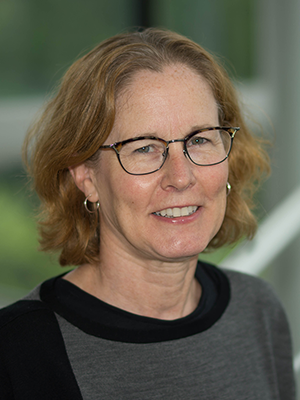Message from the Scientific Director

Our 2019 annual report for the Division of Intramural Research (DIR) of the Eunice Kennedy Shriver National Institute of Child Health and Human Development is now available to you electronically, either on the web and on your cell phones or tablets, at: annualreport.nichd.nih.gov.
We invite you to look through the report site, to review our medical and scientific discoveries of the past year, to see what work a colleague may currently be engaged in, or to identify a laboratory where you may wish to collaborate or refer a student. For potential postdoctoral fellows, graduate students, and clinical fellows, the report is fully searchable. It offers you an introduction to the array of research endeavors in NICHD’s DIR.
NICHD intramural investigators comprise a broad array of basic, translational, and clinical researchers. Our work is reflected in our mission statement:
“To plan and conduct the Institute’s laboratory and clinical research programs to seek fundamental knowledge about the nature and behavior of living systems through basic, clinical, and population-based research and determine how to apply such knowledge to illuminate developmental origins of health and disease and help ensure that women and men have good reproductive health, that children are born healthy, and that people develop to live healthy and productive lives.”
We use a range of model systems in the areas of developmental biology, molecular and cellular biology, neurosciences, structural biology, imaging, and biophysics. Investigators take advantage of our resources in a large zebrafish core facility and working with a number of other animal models, from fruit flies to rats and mice, and supported by a wide array of core services, including bioinformatics, imaging, and molecular genomics. Each investigator participates in at least one, and typically more, affinity groups. These affinity groups are team-based and future-oriented—to build on thematic interests while responding to rapidly shifting scientific priorities as new knowledge is uncovered.
We are delighted to announce the recruitment of Dr. Veronica Gomez-Lobo this year as founding Director of the Pediatric and Adolescent Gynecology Program. Dr. Gomez-Lobo and her team will provide clinical and research support to women’s health, gynecological diseases, adolescent medicine, and the transition to adulthood, all central to the mission of NICHD.
If you have not yet done so, I encourage you all to read NICHD’s 2020 Strategic Plan, available at https://www.nichd.nih.gov/about/org/strategicplan. This document will help guide the institute’s research agenda for the next five years. We are now working with our director, Dr. Diana Bianchi, on the plan’s implementation and we anticipate that the priorities identified in the plan will inform the DIR’s future recruitments.
I invite you to read through the selection of our Clinical Research Protocols listed in this website and to consider how we may collaborate, through the NIH U01 grant mechanism at the NIH Clinical Research Center. The support of this program can lead to our next new success in therapeutics, the next miracle drug, if we combine expertise, take advantage of our NIH infrastructure and our patient population, whether on rare disorders or the most persistent problems affecting human health. You can learn more about the U01 opportunities at http://clinicalcenter.nih.gov/translational-research-resources/U01.
The DIR researchers whose names appear in this publication are committed to training the next generation of scientists and physician scientists; they include tenure-track investigators who have recently joined us and accomplished investigators who continue to forge new scientific paths. Link to their reports on the web to learn about their work in 2019. I also invite you to reach out to me with your ideas and proposals for collaborative initiatives we may undertake together, at dassom@mail.nih.gov.
Our drive and purpose, on behalf of the American public and the international community, is to strive to uncover fundamental answers to our existence, whether the basic science that underpins life or the complexities of human health and disease. This is our privilege and responsibility to our chosen professions
Sincerely yours,
Mary C. Dasso, PhD
Acting Scientific Director, NICHD, NIH


